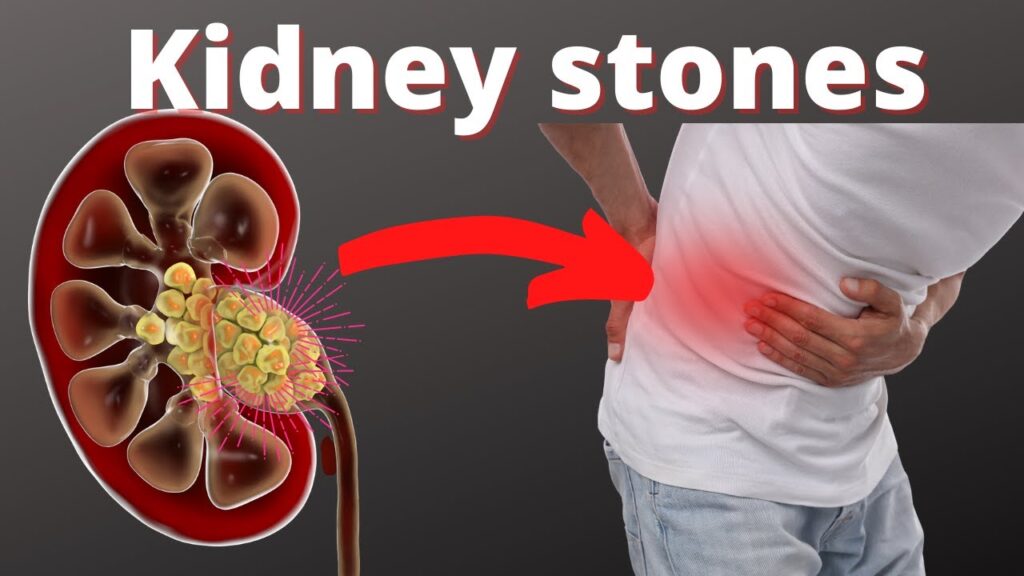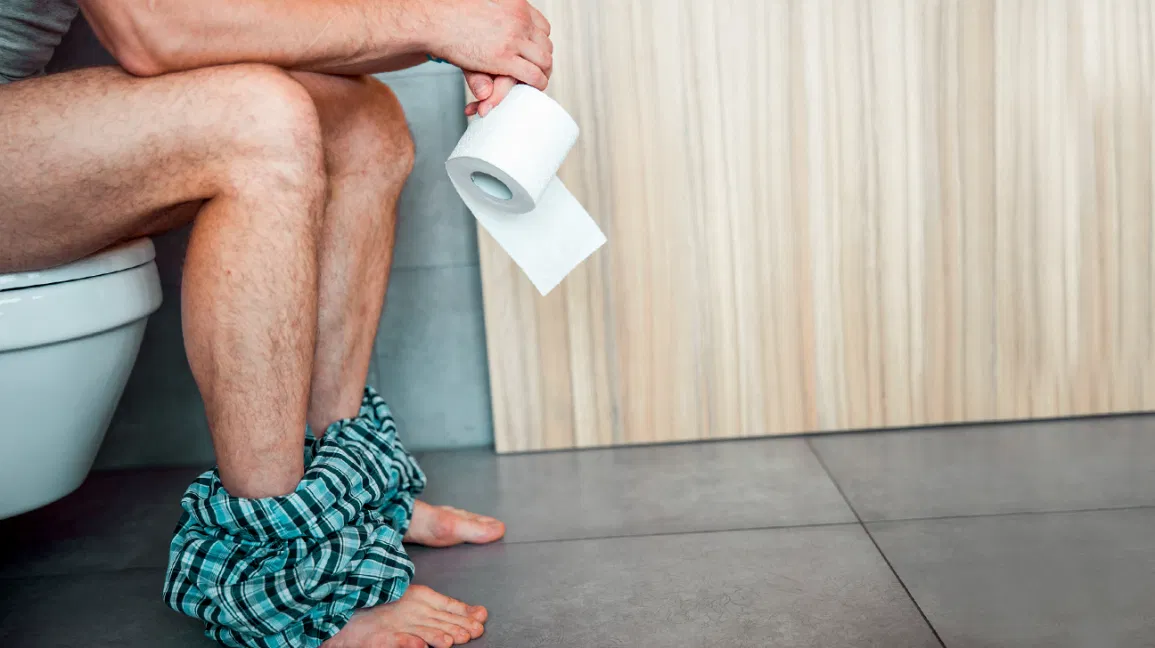If you’ve had kidney stones before, you probably already know how painful they can be. And if you’ve ever tried to pass them out, you know how difficult it can be. Most people with kidney stones will pass them out naturally within 2 weeks. However, if you have a large enough stone, it may not pass out on its own. In these cases, you may need surgery to remove the stone. But, do you know what causes kidney stones? And what can you do to prevent them?
Kidney stones are tiny crystals that form inside the kidneys. They can cause severe pain and sometimes even block the flow of urine. The only way to get rid of these stones is to pass them naturally through the urinary tract. While passing a kidney stone can be incredibly uncomfortable, it’s possible to pass them without medical assistance. Some people have passed their stones multiple times.
Recommended: Can Your Kidneys Hurt From Coughing?
You will learn everything you need to know about kidney stones, including why they happen, how to prevent them, and what you should do if you get one.
Can You Poop Kidney Stones Out?
No, you can not poop out kidney stones. There is no relationship between the kidneys and bowel movements; instead, they are connected to the urinary system. As a result, whenever a kidney stone dissolves, it can only be passed out through urine.
Gallstones are actually the ones that can be pooped out. When the appropriate medication and diet are taken, the smaller or minute gallstones frequently pass through the feces.
Passing out kidney stones through urine takes a lot of work. First, you must find out whether you’re prone to kidney stones. Then, you should schedule regular visits to your doctor to monitor your urine output.
Recommended: Can Kidney Stones Cause You To Lose Weight?
Tell your doctor immediately if you notice any unusual color, smell, or consistency in your urine. Your doctor may recommend additional tests to determine whether you’re at risk for developing kidney stones.
Once you’ve determined that you’re at risk, you can begin taking steps to prevent kidney stones. These include drinking plenty of water, eating a healthy diet, exercising regularly, and getting enough sleep.
Also, try to avoid caffeine, alcohol, and spicy foods. And be careful not to overdo it when you exercise.
Finally, talk to your doctor about medications that could affect your kidneys. Some drugs, including certain antibiotics, diuretics (water pills), and antihistamines, can cause dehydration. So, if you take these drugs, ask your doctor about ways to prevent dehydration.
Recommended: How Long Does Kidney Failure Take To Kill You?
And remember, if you experience pain or discomfort during urination, call your doctor right away. Kidney stones can sometimes lead to severe infections, so you don’t want to wait until they become serious.
What Causes The Formation Of Kidney Stones?
The most common cause is dehydration. Dehydration occurs when we lose too much water through our urine. This happens when we drink too much alcohol, sweat excessively, or exercise too much. Some foods may also contribute to kidney stones. These include red meat, dairy products, caffeine, and some fruits and vegetables.
Recommended: Does AZO Help With Kidney Stones?
Kidney stones are formed when minerals and salts crystallize inside the kidneys. They’re usually small, hard lumps that form in the urinary tract. There are many types of kidney stones, including struvite (a type of bacteria infection), uric acid, calcium oxalate, calcium phosphate, magnesium ammonium phosphate, cysteine, etc.

Medications are also a contributing factor. Certain drugs, including diuretics (water pills), laxatives, and painkillers, can lead to dehydration and increase the risk of forming kidney stones.
Gender is yet another factor. Men tend to develop kidney stones more often than women. Women may experience more severe symptoms because their bodies produce hormones that help flush out toxins.
Age is another factor. Kidneys become weaker over time, making it harder to eliminate waste products. This leads to more frequent episodes of dehydration, which increases the risk of developing kidney stones.
How Are Kidney Stones Diagnosed?
A diagnosis of kidney stones begins with a physical exam by your doctor. They will check your blood pressure, pulse rate, weight, and temperature. The doctor may also look for swelling in your hands, feet, face, or legs. Your doctor may order other tests as well, such as:
A blood test: A blood sample is taken from a vein in your arm. It’s used to measure electrolytes, proteins, glucose, cholesterol, triglycerides, creatinine, and urea nitrogen levels.
A urine test: A urine sample is collected in a special container. It’s analyzed to determine how much sugar, protein, and specific substances are present.
X-ray: An x-ray uses invisible energy beams to create images of internal organs on film. This technique is used to detect abnormalities like kidney stones.
Ultrasound: Ultrasonography uses sound waves to create pictures of body structures. It’s an effective way to diagnose problems like kidney stones.
CT scan: Computerized tomography scans use X-rays to take detailed cross-sectional views of the body. CT scans provide better details than traditional x-rays.
Recommended: Azo For Kidney Stones: Debunking Myths and Misconceptions
How Do You Treat Kidney Stones?
There are two main treatments for kidney stones. One involves removing the stones surgically. Another involves dissolving them with medication.
Surgical removal of kidney stones is done either by inserting a scope down the urethra into the bladder and passing a laser fiber through the scope to burn away the stone or by using a catheter to suck out the stone.
Medication is used to dissolve kidney stones. Medications increase the amount of fluid in the body, which helps flush out the stone.
You can use over-the-counter medications, such as milk of magnesia, or prescription medicines, such as cholestyramine, colestipol, or thiazide diuretics. You should always check with your doctor before taking any new medicine.
Recommended: Lifespan Of Your Liver: 10 Tried And True Ways To Enhance It
If you have an infected kidney stone, your doctor will prescribe antibiotics to kill off the bacteria that caused the infection. Your doctor may also recommend other measures, such as drinking plenty of fluids, eating low-salt meals, avoiding certain foods, and wearing loose clothing.
If you get persistent kidney stones, your doctor may suggest surgery to remove the stones permanently.
Conclusion
Kidney stones are small pieces of mineral deposits that form inside your kidneys. They cannot be pooped out but are usually passed out through your urinary tract without causing problems. Sometimes they can become stuck and cause pain. The main symptoms of kidney stones include painful urination, blood in your urine, nausea, vomiting, fever, chills, and fatigue. However, these symptoms aren’t always present, so you might not know you have kidney stones until it is too late.
Fortunately, there are several treatments available for kidney stone sufferers. These range from medications to surgery, depending on the severity of the problem. In general, however, the sooner you seek treatment, the easier it will be to treat the condition successfully. There are plenty of things you can do to help prevent their occurrence. For example, you should drink lots of water, limit your salt intake, avoid caffeine, and keep your diet low in sugar and high in fiber. Also, if you notice any changes in your urine color or odor, you should contact your doctor immediately.
